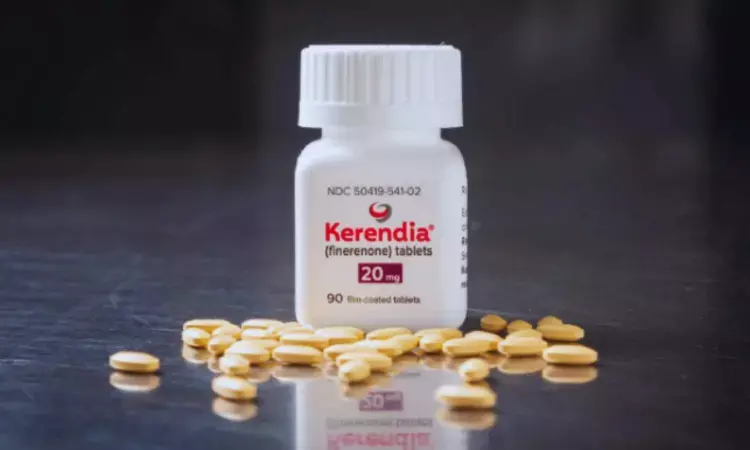- Home
- Medical news & Guidelines
- Anesthesiology
- Cardiology and CTVS
- Critical Care
- Dentistry
- Dermatology
- Diabetes and Endocrinology
- ENT
- Gastroenterology
- Medicine
- Nephrology
- Neurology
- Obstretics-Gynaecology
- Oncology
- Ophthalmology
- Orthopaedics
- Pediatrics-Neonatology
- Psychiatry
- Pulmonology
- Radiology
- Surgery
- Urology
- Laboratory Medicine
- Diet
- Nursing
- Paramedical
- Physiotherapy
- Health news
- Fact Check
- Bone Health Fact Check
- Brain Health Fact Check
- Cancer Related Fact Check
- Child Care Fact Check
- Dental and oral health fact check
- Diabetes and metabolic health fact check
- Diet and Nutrition Fact Check
- Eye and ENT Care Fact Check
- Fitness fact check
- Gut health fact check
- Heart health fact check
- Kidney health fact check
- Medical education fact check
- Men's health fact check
- Respiratory fact check
- Skin and hair care fact check
- Vaccine and Immunization fact check
- Women's health fact check
- AYUSH
- State News
- Andaman and Nicobar Islands
- Andhra Pradesh
- Arunachal Pradesh
- Assam
- Bihar
- Chandigarh
- Chattisgarh
- Dadra and Nagar Haveli
- Daman and Diu
- Delhi
- Goa
- Gujarat
- Haryana
- Himachal Pradesh
- Jammu & Kashmir
- Jharkhand
- Karnataka
- Kerala
- Ladakh
- Lakshadweep
- Madhya Pradesh
- Maharashtra
- Manipur
- Meghalaya
- Mizoram
- Nagaland
- Odisha
- Puducherry
- Punjab
- Rajasthan
- Sikkim
- Tamil Nadu
- Telangana
- Tripura
- Uttar Pradesh
- Uttrakhand
- West Bengal
- Medical Education
- Industry
Finerenone receives Grade A Recommendation for treating CKD patients associated with type 2 diabetes: AACE update

USA: Bayer's KERENDIA (finerenone), a first-in-class non-steroidal mineralocorticoid receptor antagonist (ns-MRA) has received a grade A recommendation for the management of patients with chronic kidney disease (CKD) associated with type 2 diabetes (T2D). The recommendation was issued by the American Association of Clinical Endocrinology (AACE) as a part of its update to the Developing a Diabetes Mellitus Comprehensive Care Plan guideline.
KERENDIA was approved by the FDA in July 2021 to reduce the risk of sustained estimated glomerular filtration rate (eGFR) decline, end-stage kidney disease, cardiovascular (CV) death, non-fatal myocardial infarction (MI) and hospitalization for heart failure in adult patients with CKD associated with T2D, based on the results of the FIDELIO-DKD pivotal trial.3 The KERENDIA label contains a Warning and Precaution that KERENDIA can cause hyperkalemia.3 For more information, see "Important Safety Information" below.
The updated AACE guideline included a recommendation for KERENDIA, an ns-MRA with proven kidney and cardiovascular disease (CVD) benefits, for patients with CKD associated with T2D who have an eGFR ≥25 mL/min/1.73 m2, normal serum potassium concentration and albuminuria (urine albumin-to-creatinine ratio ≥30 mg/g) despite maximum tolerated dose of renin-angiotensin-system (RAS) inhibitor.1 The recommendation is based on data that demonstrated KERENDIA's ability to reduce the risk of sustained eGFR decline, end-stage kidney disease, CV death, non-fatal MI and hospitalization for heart failure.1
"The guideline takes a fresh look at the latest evidence in today's environment and provides robust guidance for clinicians to ensure we are providing the highest standards of care," said Susan L. Samson, M.D., Ph.D., FRCPC, FACE, Interim President Elect and Treasurer of AACE and an author of the guideline in AACE's press release. "AACE has led the way with clinical knowledge of endocrinology since 1991, and I am proud that with this updated guideline, we can continue to be a proactive force in providing diabetes education, support and guidance."4
"The latest AACE guideline helps patients and their care teams better understand the treatments and resources available and equips them with the latest scientific evidence to aid critical decisions for optimal disease management," said Amit Sharma, M.D., Vice President of Cardiovascular and Renal, U.S. Medical Affairs at Bayer.
"AACE's latest guideline update reinforces KERENDIA as a fundamental pillar in the treatment algorithm for preserving kidney function and providing dual cardiorenal risk reduction in chronic kidney disease associated with type 2 diabetes patients with a broad range of chronic kidney disease severity."1,3
In a joint consensus statement released by the American Diabetes Association (ADA) and Kidney Disease: Improving Global Outcomes (KDIGO) earlier this month, the clinical bodies recommended inclusion of KERENDIA in the treatment regimen of patients with CKD associated with T2D who have an eGFR ≥25 mL/min/1.73 m2, normal serum potassium concentration and albuminuria (urine albumin-to-creatinine ratio ≥30 mg/g) despite maximum tolerated dose of RAS inhibitor.5
*Recommendations that are granted a grade A recommendation are based on strong evidence proven through clinical trials per the AACE protocols.1
**Recommendations with an A rating, the ADA's highest recommendation, are based on large, well-designed clinical trials or well-done meta-analyses that have the best chance of improving outcomes. Generally, these recommendations have the best chance of improving outcomes when applied to the population to which they are appropriate.
References:
1. Blonde L, Umpierrez GE, McGill JB, et al. American Association of Clinical Endocrinology clinical practice guideline: developing a diabetes mellitus comprehensive care plan-2022 update. Endocr Pract. 2022;S1530-891X(22)00576-6. doi:10.1016/j.eprac.2022.08.002.
2. ADA Professional Practice Committee. Addendum. 10. Cardiovascular disease and risk management: standards of medical care in diabetes-2022. Diabetes Care. 2022;45(suppl 1):S144-S174. doi:10.2337/dc22-ad08
3. de Boer IH, Khunti K, Sadusky T, et al. Diabetes management in chronic kidney disease: a consensus report by the American Diabetes Association (ADA) and Kidney Disease: Improving Global Outcomes (KDIGO). Diabetes Care. 2022:dci220027. doi:10.2337/dci22-0027.
4. American Diabetes Association Professional Practice Committee. Chronic kidney disease and risk management: standards of medical care in diabetes-2017. Diabetes Care. 2017;40(suppl 1):S1-S2. https://doi.org/10.2337/dc17-S001
Dr Kamal Kant Kohli-MBBS, DTCD- a chest specialist with more than 30 years of practice and a flair for writing clinical articles, Dr Kamal Kant Kohli joined Medical Dialogues as a Chief Editor of Medical News. Besides writing articles, as an editor, he proofreads and verifies all the medical content published on Medical Dialogues including those coming from journals, studies,medical conferences,guidelines etc. Email: drkohli@medicaldialogues.in. Contact no. 011-43720751


